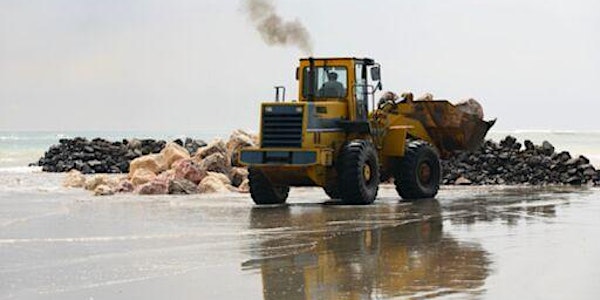
Implications of East Asia energy integration on carbon emissions in the region
Date and time
Location
Kapuas Room, WRI Indonesia
Wisma PMI 3rd Floor Jl. Wijaya I No. 63, Kebayoran Baru Jakarta, Jakarta 12170 IndonesiaDescription

The energy sector in Southeast Asia
1) Implications of East Asia energy integration on carbon emissions in the region
Professor Budy Resosudarmo (Indonesia Project, Crawford School of Public Policy, The Australian National University)
Abstract: It has been argued that East Asia’s electricity market would be integrated in the next few decades. Few studies, however, are available about its social, economic, and environmental implications for the region, particularly for ASEAN countries. Would the integration lower carbon emissions from the region? Would the poor benefit from the integration? This paper utilises an Inter-regional Social Accounting Matrix for East Asia in an attempt to analyse the implications of the East Asia's electricity market integration on the socio-economic and environmental performances of the region, particular for ASEAN countries.
2) What does it take to achieve Southeast Asia energy transition?
Almo Pradana (WRI Indonesia)
Southeast Asia (SEA) energy demand is projected to double by 2040, representing 12% rise in projected global energy use in 2040 (IEA, 2019). Policy makers across SEA countries have increased efforts in providing more sustainable and/or low carbon energy generation and facilities, especially in providing universal access to rural communities. The involvement of large-scale energy consumers, the private sector, plays a major role in accelerating energy transition and achieve countries’ climate targets. The presentation will discuss current state of the art role of private sector in addressing provision of low-carbon energy, including policy and business opportunities and challenges for the sector.
FKP is free and open to the public. No certificate is given for attendance.
Livestream FKP video can be accessed through http://www.youtube.com/user/ANUIndonesiaProject and links to slides through http://fkpindonesia.org/
Please use #IndoFKP for your social media information of the event.
FKP schedule for 2020:
- January: ANU Indonesia Project
- February: Bank Indonesia Institute
- March: WRI Indonesia dan SDGs Center Universitas Hasanuddin
- April: P2E LIPI
- May: LPEM FEB UI
- June: Innovation for Indonesia's School Children Program (INOVASI)
- July: Center for Indonesian Policy Studies (CIPS) and INSPIRASI Foundation
- August: LD FEB UI
- September: Article 33 Indonesia and FEB Universitas Sriwijaya
- October: The SMERU Research Institute
- November: CEDS UNPAD
- December: Pusat Studi Hukum dan Kebijakan (PSHK) dan Program INSPIRASI
Please send an email to Forum.Kajian.Pembangunan at gmail.com if you would like the schedule to be sent directly to your inbox, or subscribe to the FKP Facebook group https://web.facebook.com/groups/forumpembangunan/
Organized by
About WRI Indonesia: https://wri-indonesia.org/
About ANU Indonesia Project: http://indonesia.crawford.anu.edu.au/